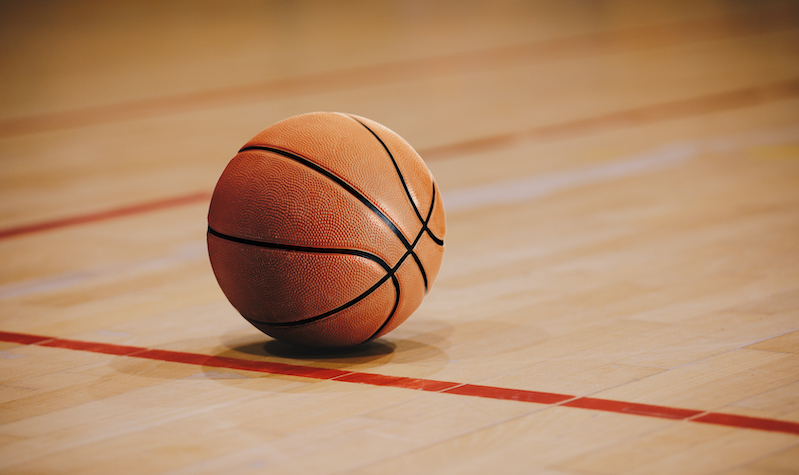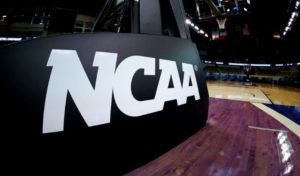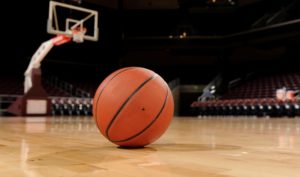
Regulatory reforms may provide student athletes with financial opportunities beyond scholarships.
College student athletes generate millions of dollars in profits for schools, coaches, and conference and network executives—everyone, it seems, but themselves.
College athletics operate under the National Collegiate Athletic Association (NCAA), a private nonprofit organization. Under current NCAA regulations, compensation for student athletes is limited to scholarships for their education. Meanwhile, universities enter multimillion dollar deals with cable networks and athletic brands—all of which profit from using athletes’ images in marketing campaigns, apparel sales, and ticket sales, among other revenue.
In 2019, the California legislature passed a law in direct opposition to these NCAA regulations. California Governor Gavin Newsom noted that currently every college student, except athletes, can use social media and other platforms to market and monetize their name, image, and likeness.
This restriction on college athletes will change under the new Fair Pay to Play Act, set to take effect in 2023. California student athletes will be able to monetize their social media followings, provide paid coaching, enter endorsement and advertising deals, and hire agents. Although the law allows student athletes to profit from third-party deals, it does not require, or even allow, schools to pay student athletes for their work beyond the scholarships they already receive.
After some NCAA officials expressed concern that the Fair Pay to Play Act will advantage California schools in recruiting top athletes, the organization is working to change its long-standing athlete pay regulations. The NCAA board of governors recommended that its three divisions adopt new rules that would allow student athletes to receive compensation from the use of their name, image, and likeness. The NCAA expects this unprecedented rule change to apply for the 2021 to 2022 school year.
In addition, a federal court recently found that NCAA limitations on student athlete compensation violate antitrust law. The NCAA, the court held, could preserve amateurism in college sports while increasing the organization’s current caps on education-related benefits that athletes can receive. The U.S. Supreme Court will soon review that decision, which paves the way for athletes to receive greater benefits such as “graduate school scholarships, study abroad opportunities, or computers.”
Some commentators worry that pay-to-play rules would diminish the spirit of amateurism in college athletics. Others argue that the current system exploits student athletes—especially Black athletes who dominate the two biggest revenue-generating college sports, football and basketball. Some experts also note that new pay-to-play rules could benefit female college athletes who often have fewer opportunities than men to profit from their sport after college.
This week’s Saturday Seminar explores legal issues surrounding pay-to-play rules and the future of amateurism in college sports.
- In an article in the Harvard Journal of Sports and Entertainment Law, Indiana University’s Jayma Meyer and Smith College’s Andrew Zimbalist propose a federal framework to pay student athletes for use of their name, image, and likeness. Under this framework, universities could profit from using this information for limited purposes, such as promoting athletic events and selling official team apparel. Athletes could then enter into endorsement deals with third parties if the agreement does not conflict with the schools’ right to use their images. Meyer and Zimbalist urge the U.S. Congress to establish an independent commission to regulate these payments. They recommend that the commission pass regulations—such as maximum income and academic standards—to ensure that student athletes’ academic success remains a priority over their athletic success.
- James Landry of the De Novo Agency and Thomas A. Baker III of the University of Georgia also propose a new model for payments to college athletes for their name, image, and likeness. In an article in the NYU Journal of Intellectual Property and Entertainment Law, they conclude that “no reason in law or common sense” justifies the current NCAA ban on these payments. If the NCAA changes its athlete compensation rules and permits athletes to hire agents, Landry and Baker recommend that the organization also create an “agency certification process” to protect athletes from untrustworthy sports agents. Landry and Baker also suggest adopting academic eligibility criteria as a condition of payments, which would prevent both athletes and universities from profiting if athletes’ grades fall below a certain level.
- In a recent article, Kevin D. Brown and Antonio Williams of Indiana University examine the ramifications of the amateurism model—limiting athlete compensation to the cost of attending school—on major revenue-generating college sports such as Division I football and Division I men’s basketball. Because Black students are over-represented in high revenue-generating sports, Brown and Williams worry about the potential for racial exploitation in applying the amateur model. They acknowledge that substantial legal obstacles deter abandoning amateurism, such as the effect of athlete pay on universities’ federal income taxes. Instead of abandoning amateurism altogether, Brown and Williams recommend reallocating some of the revenue from college sports to fund programs to increase higher education outcomes for all members of the Black community.
- In a forthcoming article in the West Virginia Law Review, Sam C. Ehrlich of Boise State University examines the employment law implications of lifting the NCAA ban on paying student athletes. Operating under the assumption that student athletes will become statutory employees of their colleges under the Fair Labor Standards Act (FLSA), Ehrlich considers whether athletes’ current compensation—tuition, housing, and food—can be credited toward minimum wages. To count toward minimum wages under the act, employers must provide regular benefits that primarily aid the employee, who must then voluntarily accept the benefits. Ehrlich argues that, although food and housing could count toward minimum wage, college tuition is not creditable under FLSA.
- Roberto L. Corrada of the University of Denver Sturm College of Law argues in a Chicago-Kent Law Review article that certain institutions of higher education will soon consider student athletes employees of their respective institutions. Corrada suggests tweaking S. Department of Labor regulations to reclassify student athletes under a category similar to a work-study program. Accommodating student athletes under a system modeled after the Federal Work-Study Program could make them eligible for other benefits such as “sick leave, paid-time off, health care, and workers compensation,” but could also “trigger a host of other employment-related obligations,” including unemployment insurance, Corrada explains.
- Marc Edelman of the Zicklin School of Business at Baruch College argues in a Wake Forest Journal of Business and Intellectual Property Law article that the NCAA violates Section One of the Sherman Antitrust Act when it threatens to ban universities that permit student athlete endorsement deals. Edelman contends that the NCAA banning its members would be anticompetitive economically and harmful to consumers of college sports. Without competition among recruiting schools, college sports fans cannot express their preference for certain athletes. Because no federal statutes or common law policies “preempt the application of antitrust law” in this situation, the NCAA’s possible arguments to defend against antitrust charges would be weak, Edelman argues.
The Saturday Seminar is a weekly feature that aims to put into written form the kind of content that would be conveyed in a live seminar involving regulatory experts. Each week, The Regulatory Review publishes a brief overview of a selected regulatory topic and then distills recent research and scholarly writing on that topic.


